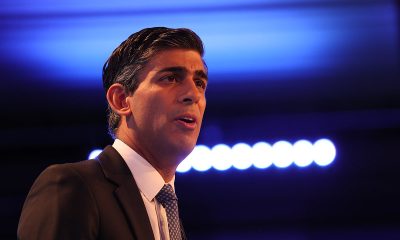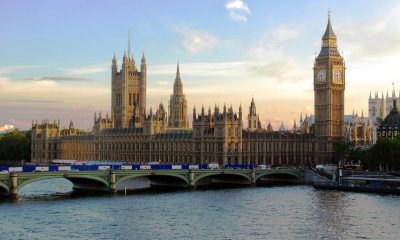Canada News
Trudeau opens door to federal intervention on Quebec’s face covering law
OTTAWA — Justin Trudeau has opened the door to federal intervention to challenge Quebec’s new law on religious neutrality, widely seen as targeting Muslim women who wear face veils.
Immediately after Quebec passed Bill 62 last week, the prime minister was hesitant to come out strongly against the legislation. He said the responsibility to challenge the law lay with citizens, not the federal government.
But he was considerably more forceful Wednesday, scoffing at the Quebec government’s attempts to clear up confusion about how the law will be applied and disclosing that the federal government is exploring its options for protecting the rights of women who cover their faces.
“I will always stand up for individual rights and I will always stand up for the Charter of Rights and Freedoms and we are looking very carefully at what tools we have and what steps we have to make sure we make this situation better for everyone,” Trudeau said.
Among the federal government’s options: it could wait for an individual to challenge the constitutionality of the law and then intervene in the court case or it could pre-empt a lengthy legal battle by referring the law to the Supreme Court for advice on its constitutionality.
The federal government could also help finance a court challenge through the court challenges program, which the Trudeau government reinstated to help fund individuals or groups who initiate cases involving charter rights and freedoms. However, decisions on which cases to fund are made by an independent third party, not the government.
In response to Trudeau’s stepped-up criticism, Quebec Justice Minister Stephanie Vallee said the province has the right to legislate on matters within its jurisdiction.
“Mr. Trudeau has the right to not share our opinion,” she told reporters in Quebec City. “And he has the right to have an opinion on the law. But I am not going to get into a debate in the media about that.
“But I am really confident that the law is constitutional and I am convinced that it would withstand any legal challenge.”
If the law were to be struck down as unconstitutional, Vallee said the provincial government has not yet considered whether it would use the so-called notwithstanding clause to override the charter of rights and keep the law intact.
“We’re not there yet,” she said.
“The notwithstanding clause is not part of the debate because there is no legal challenge so far.”
Bill 62 requires anyone providing or receiving provincial and municipal public services in Quebec to uncover their faces.
Last week, Vallee said the law would oblige people riding a bus or the subway to do so with their faces uncovered for the entire journey.
On Tuesday, however, she backtracked, saying only those whose fare requires a card with photo ID will need to uncover their faces before riding public transit — and that they can put the veil back on once they’ve been identified.
Asked Wednesday about Vallee’s clarifications, Trudeau replied: “You call those clarifications?”
“I think we’re seeing there are still a lot of things to clarify in this bill, including how it will be applied,” he said. “We will do our homework here in Ottawa. As I’ve said several times, I don’t think a government should be telling a woman what to wear or not wear.”
NDP Leader Jagmeet Singh said he’s been clear from the outset that he’s opposed to the law and suggested Trudeau’s position “has been evolving.”
However, he did not offer any support for federal intervention in the matter.
“That’s something that’s going to be decided by the people of Quebec … if they want to question this law. There are tools that exist. There’s a strong charter of rights and freedoms that exist in Quebec and that will be a decision made by the people of Quebec if they want to challenge this legislation.”
Even within Liberal ranks, opinion is split on whether the federal government should intervene.
Montreal MP Alexandra Mendes called on the Trudeau government last week to challenge the law.
But her fellow Montreal MP, Nicola Di Iorio, said Wednesday he believes the federal government should butt out and give “all the deference, all the latitude” to Quebec’s national assembly.
Earlier this week Social Development Minister Yves Duclos and Transport Minister Marc Garneau also said the federal government shouldn’t get involved.
“It’s not up to the federal government to tell Quebec how to do things,” said Duclos.






















